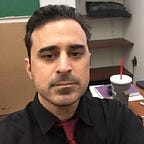LINGUISTICS
A Brief Introduction to Linguistics
On language as an object of scientific investigation
When I tell someone I’m a linguist, a common response is: “how many languages do you speak?” Of course, the term “linguist” has a few different uses and definitions. Colloquially, it is applied to polyglots, and sometimes, to translators. I do speak two languages natively (English and Portuguese), though that is not what makes me a linguist.
Less colloquially, a linguist is someone who works in the field of linguistics, the scientific study of language. When I tell people this, they often ask what it means to study something like language scientifically. After all, don’t grammar, usage rules, and pronunciation fall under the jurisdiction of dictionaries, style manuals, and English professors? In what sense is any of this scientific?
What leads to these questions is a common misconception about the nature of language. Linguistics is a branch of cognitive science, which studies the mind. Language is a cognitive skill, and like any cognitive skill, it can be studied scientifically. Linguists study the structure and contents of this skill, and attempt to answer the question: “What is it that we know exactly when we know how to speak a language?”
